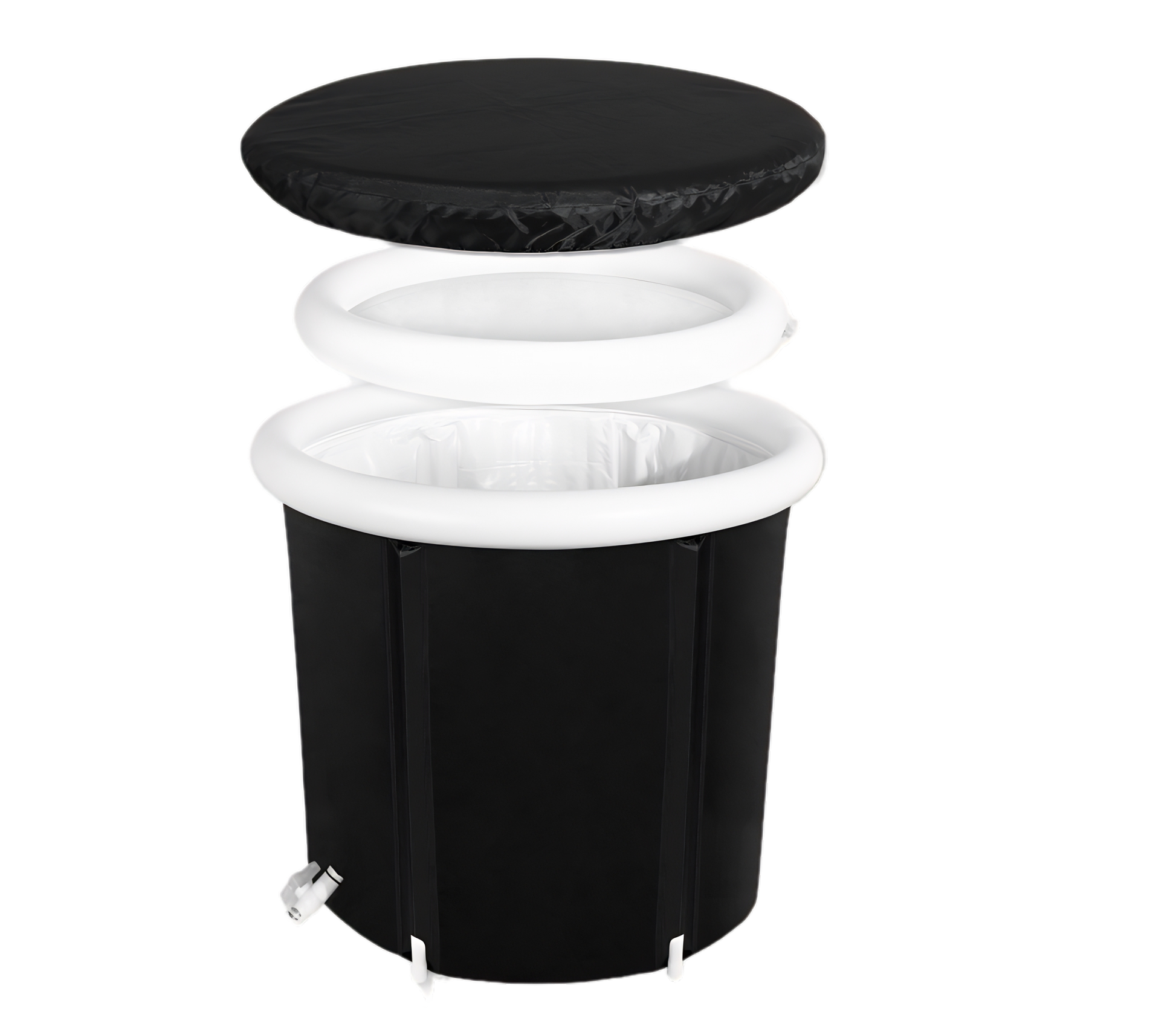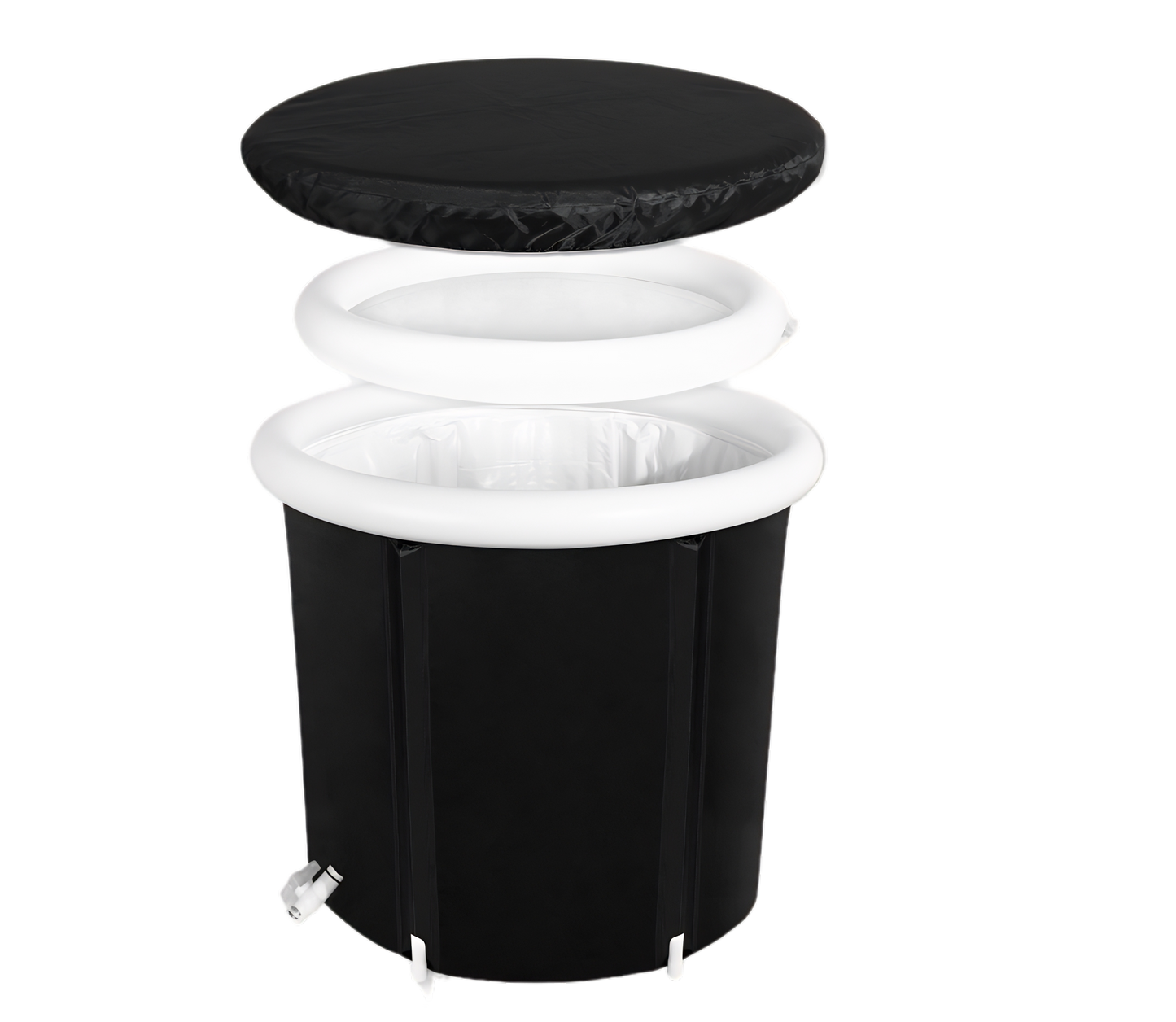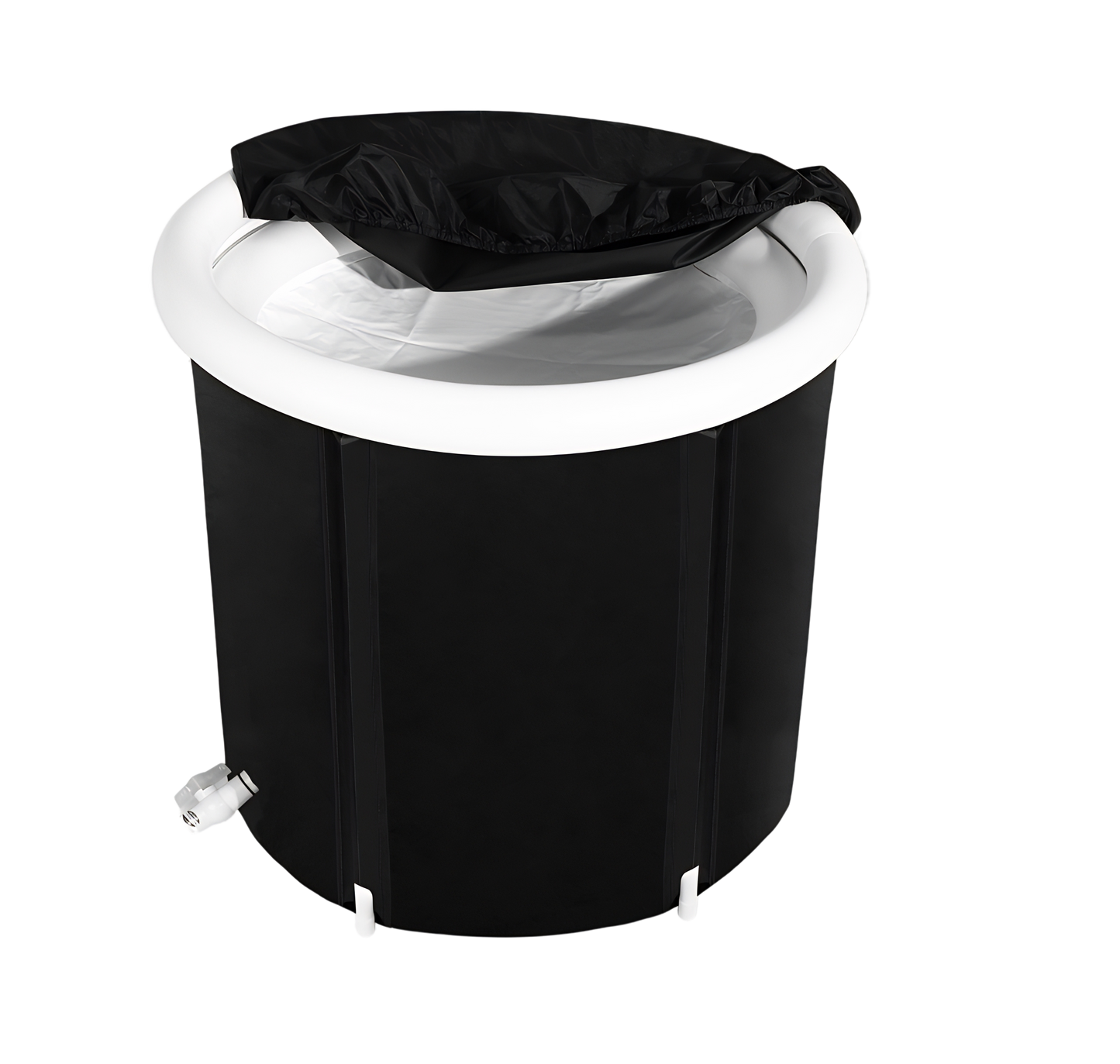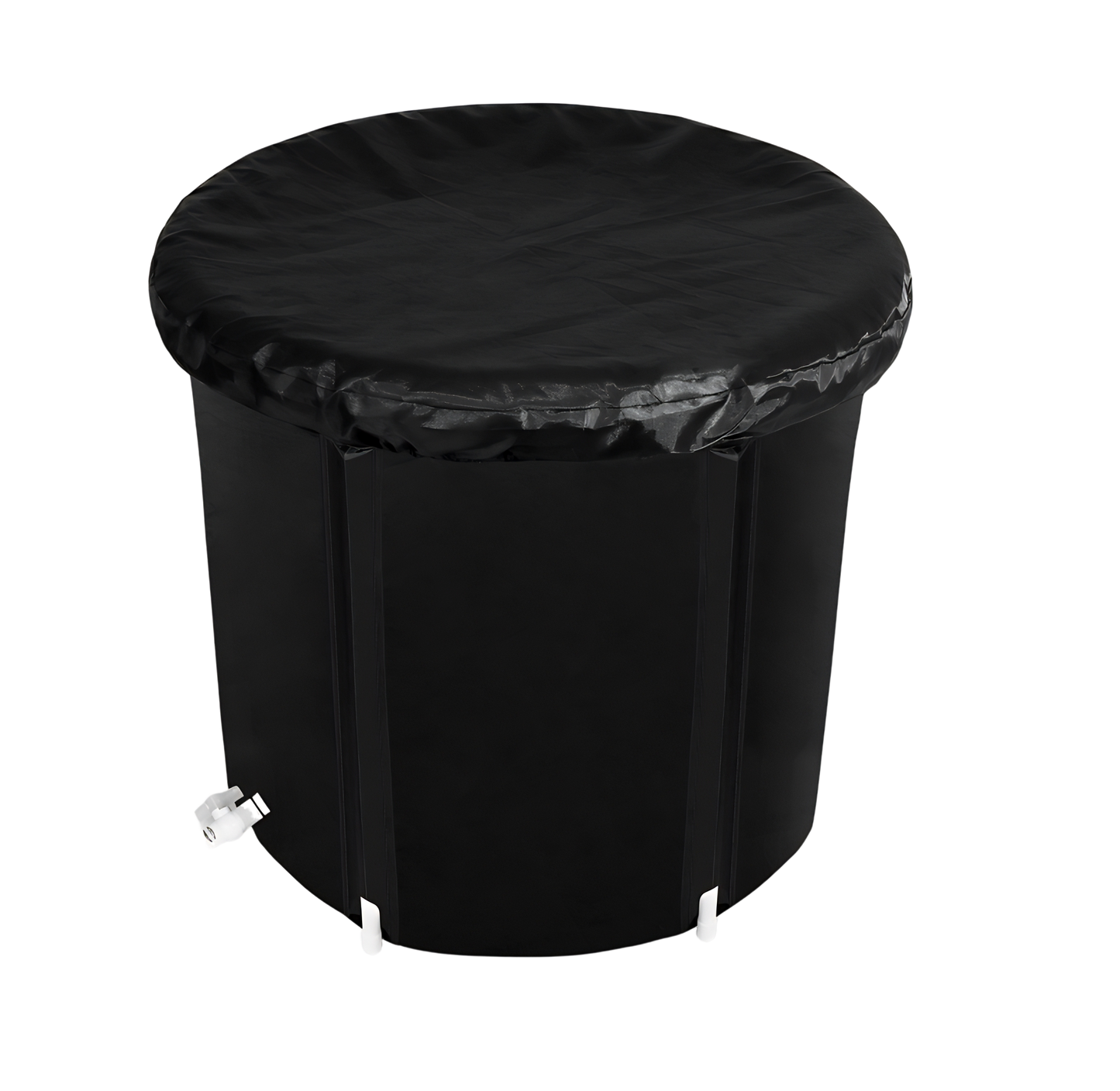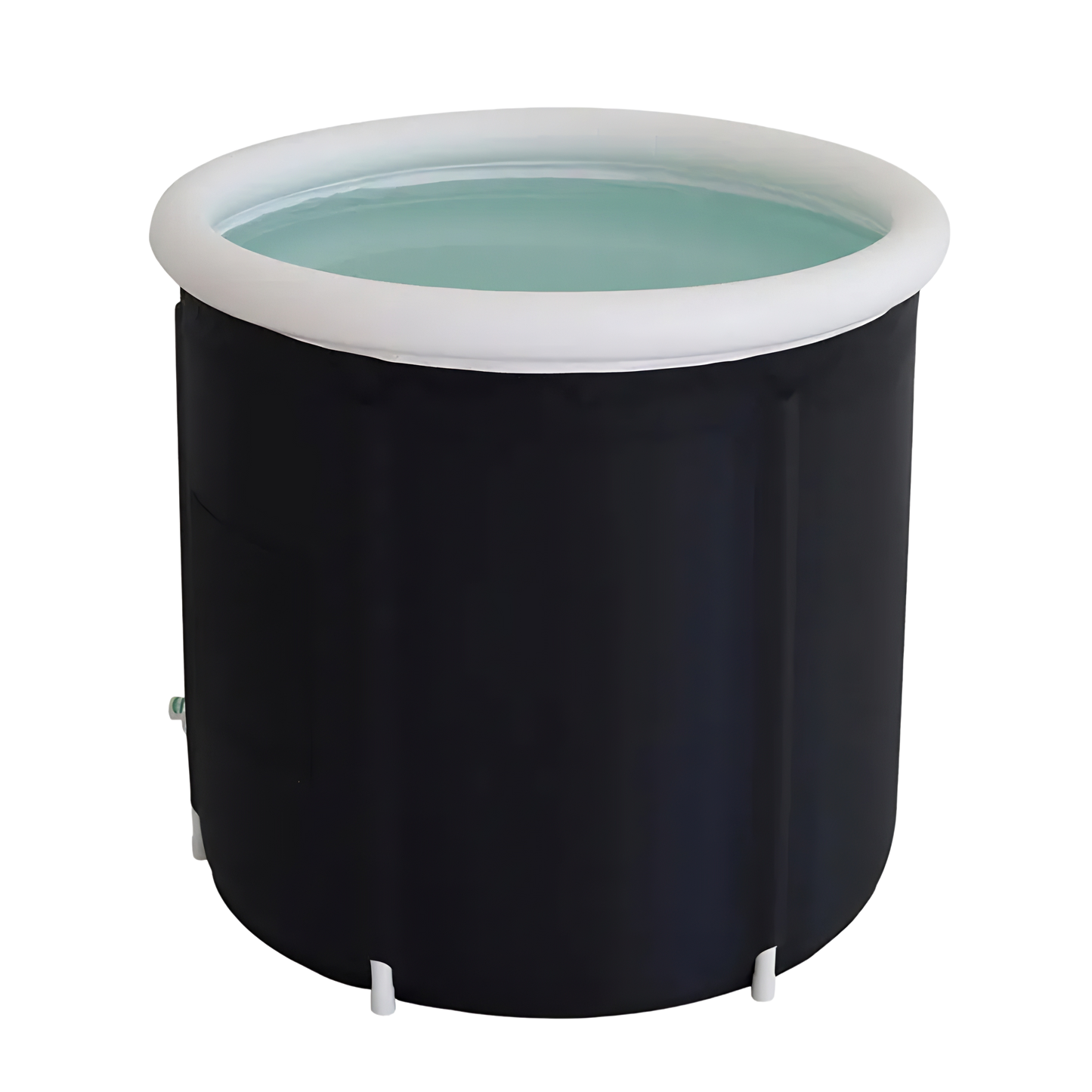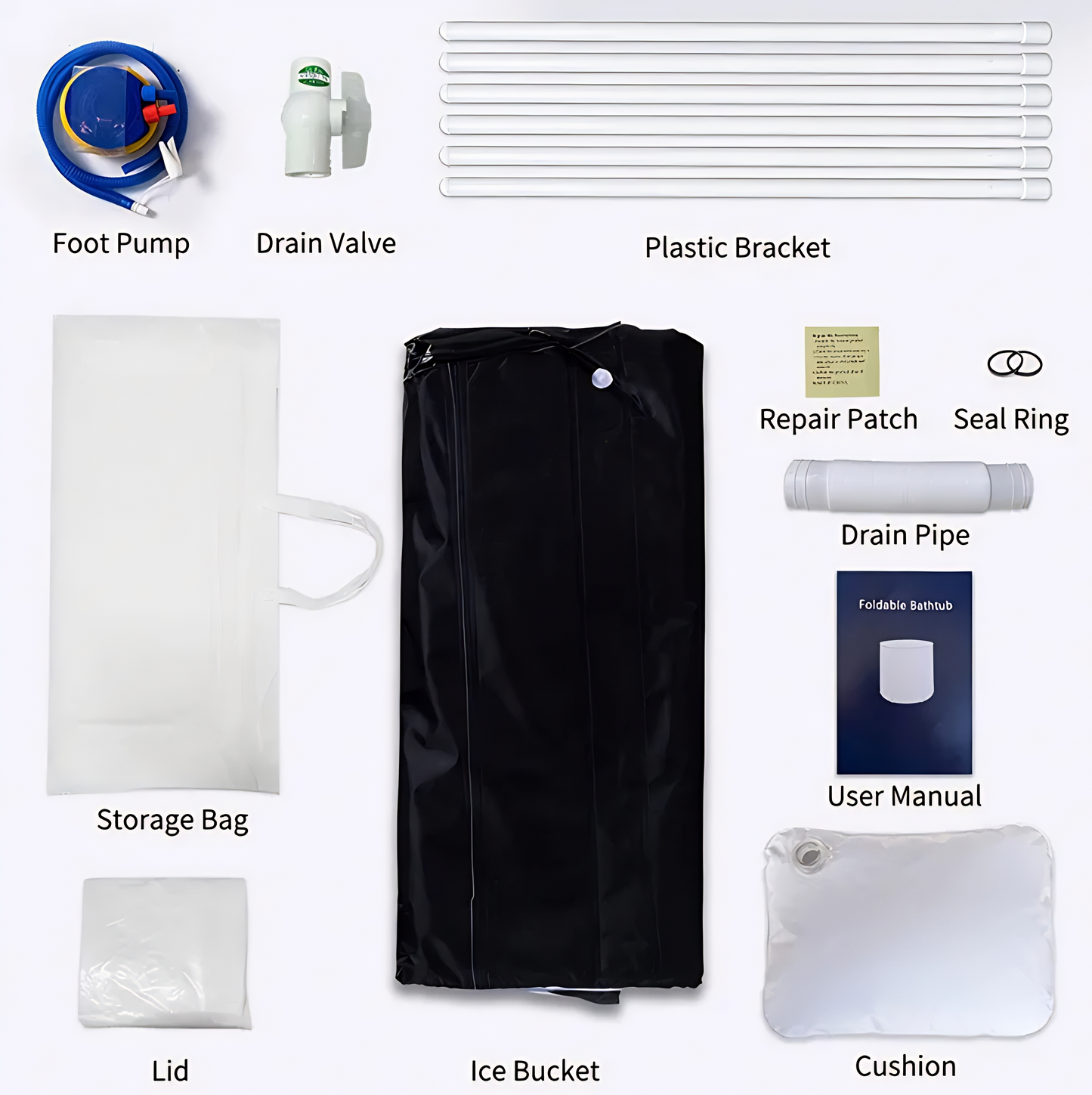Taking a post-workout plunge in an ice water bath, also known as cold water immersion or cryotherapy, is a common practice among athletes. It is believed to help in faster recovery and reduce muscle pain and soreness after intense training sessions or competitions. The theory behind ice baths is that they constrict blood vessels, flush out waste products like lactic acid, decrease metabolic activity, reduce swelling and tissue breakdown, and improve the healing process through increased blood flow.
However, the scientific evidence regarding the benefits, ideal time, and optimal temperature of cold water immersion is inconclusive. While some studies suggest that ice baths may reduce delayed onset muscle soreness, others show that they may disrupt training adaptations and hinder muscle growth. Further research is needed to reach a firm conclusion on the efficacy of ice baths for muscle recovery.
Key Takeaways:
- Post-workout ice baths are commonly used by athletes for muscle recovery.
- Ice baths are believed to reduce muscle pain and soreness.
- The scientific evidence on the benefits of ice baths is inconclusive.
- Ice baths may disrupt training adaptations and hinder muscle growth.
- Further research is needed to determine the efficacy of ice baths for muscle recovery.
How Do Ice Baths Work and Are They Effective?
Cold therapy for muscles, such as ice baths, has gained popularity among athletes as a muscle recovery technique. But how exactly do ice baths work, and are they truly effective in promoting recovery?
Ice baths work by triggering several physiological responses in the body. When immersed in cold water, the body experiences vasoconstriction, where blood vessels constrict to reduce blood flow to the extremities and redirect it to the core organs. This process helps in removing waste products like lactic acid from the muscles and reducing inflammation. The cold temperature also decreases metabolic activity, which can lead to decreased tissue breakdown and swelling.
"Ice baths can be beneficial in reducing muscle soreness and inflammation, but it's important for athletes to consider the potential risks and drawbacks."
While some athletes swear by the benefits of ice baths, scientific studies have yielded mixed results. Some studies suggest that ice baths may actually hinder long-term muscle gains and adaptations. It's believed that the cold temperature may interfere with the body's natural healing and regenerative processes that occur in response to exercise. This has raised concerns among researchers and coaches about the potential negative impact of ice baths on muscle recovery.
It's worth noting that ice baths are not without risks. Prolonged exposure to cold temperatures can increase the risk of hypothermia, especially if the water temperature is extremely low. Individuals with certain pre-existing conditions, such as cardiovascular disease or diabetes, should exercise caution when considering ice baths. It's always advisable to consult with a healthcare professional before incorporating ice baths into a post-workout routine.
While ice baths may have some benefits for muscle recovery, athletes should consider alternative recovery techniques as well. Low-intensity activity, foam rolling, stretching, massage, and warm water baths are all viable options that can promote muscle relaxation and recovery. Ultimately, it's important for athletes to experiment and find the recovery methods that work best for their individual needs and goals.
The Science Behind Ice Baths and their Potential Health Benefits
Ice baths, also known as cold water immersion, have been widely used by athletes for muscle recovery and reducing muscle soreness post-workout. But how exactly do ice baths work and what are their potential health benefits?
When you immerse your body in cold water during an ice bath, the cold temperature causes your blood vessels to constrict, directing blood flow to your major organs. This constriction helps to reduce inflammation and promote the removal of waste products, such as lactic acid, from your muscles. It also enhances oxygen and nutrient flow to support the healing process.
Once you warm up after the ice bath, your blood vessels expand, further aiding the removal of waste products and reducing inflammation. This process can help alleviate muscle soreness and promote faster recovery. In addition to its immediate effects, cold water therapy may also have long-term benefits for heart and blood vessel health by strengthening blood vessels and improving circulation.
| Ice Bath Benefits: | Potential Health Benefits: |
|---|---|
| Reduced muscle inflammation | Improved circulation |
| Decreased muscle soreness | Enhanced removal of waste products |
| Accelerated muscle recovery | Strengthened blood vessels |
While ice baths can offer potential benefits for muscle recovery and reducing muscle inflammation, it's important to approach them with caution and under the guidance of a healthcare professional. Ice baths may not be suitable for everyone, especially individuals with cardiovascular disease or diabetes. It's always recommended to consult with a professional to determine if ice baths are appropriate for your specific needs and goals.
Alternative recovery techniques, such as low-intensity activity, foam rolling, stretching, massage, and warm water baths, may also provide effective options for muscle recovery and reducing muscle soreness. Experimenting with different methods and finding what works best for you can help optimize your recovery and overall performance.
Conclusion
Ice baths have long been favored by athletes for their potential benefits in muscle recovery. However, the scientific evidence regarding their effectiveness remains inconclusive. While some studies suggest that ice baths may help reduce muscle soreness and inflammation, others indicate that they may hinder training adaptations and muscle growth.
It is essential for individuals to approach ice baths with caution and consider their specific needs. Consulting with a healthcare professional is recommended to determine if ice baths are suitable for their situation. Additionally, alternatives such as active recovery, low-impact workouts, stretching, and warm water baths may also prove effective in promoting muscle recovery.
In conclusion, while ice baths have gained popularity in the athletic community, their efficacy remains uncertain. It is important to carefully weigh the potential benefits against the potential risks and consult with a healthcare professional. Ultimately, finding the right recovery method that works for individual needs is key to achieving optimal muscle recovery.
FAQ
Are ice baths effective for muscle recovery?
The effectiveness of ice baths for muscle recovery is still debated among researchers. While some studies suggest that ice baths may reduce muscle soreness and inflammation, others indicate that they may hinder training adaptations and muscle growth. It is important for individuals to experiment and determine if ice baths work for their specific needs.
What are the potential risks associated with ice baths?
Ice baths should be used with caution as there are potential risks involved. These include hypothermia, nerve damage, pain, and complications for individuals with cardiovascular disease or diabetes. It is important to consult with a healthcare professional before using ice baths, especially for injury recovery, sports performance, or chronic pain management.
What are some alternative techniques for muscle recovery?
There are alternative techniques that can be used for muscle recovery. These include low-intensity activity, foam rolling, stretching, massage, warm water baths, and sleep. It is recommended to explore these options alongside ice baths to find the most effective method for individual needs.
Can ice baths have long-term benefits for heart and blood vessel health?
Cold water therapy, such as ice baths, may have long-term benefits for heart and blood vessel health. It can strengthen blood vessels and improve circulation, promoting oxygen and nutrient flow. However, it is important to note that cold water therapy should be done under the guidance of a healthcare professional.

